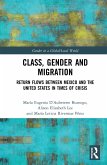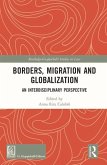The continuum of exploitation that has historically defined the everyday of domestic work - exclusion from employment and social security standards and precarious migration status - has frequently been neglected. It is primarily the moments of crisis, incidents of human trafficking, slavery or forced labour, that have captured the attention of human rights law. Only recently has human rights law has begun to address the structured inequalities and exclusions that define the domain of domestic work. This book addresses the specific position of domestic workers in the context of evolving human rights norms. Drawing upon a broad range of case studies, this book presents a thorough examination of key issues such as the commodification of care, the impact of the jurisprudence of the Court of Justice of the European Union and the European Court of Human Rights on 'primary care providers', as well as the effect that trends in migration law have on migrant domestic workers. This volume will be of interest to lawyers, academics and policy makers in the fields of human rights, migration, and gender studies.
Hinweis: Dieser Artikel kann nur an eine deutsche Lieferadresse ausgeliefert werden.
Hinweis: Dieser Artikel kann nur an eine deutsche Lieferadresse ausgeliefert werden.








